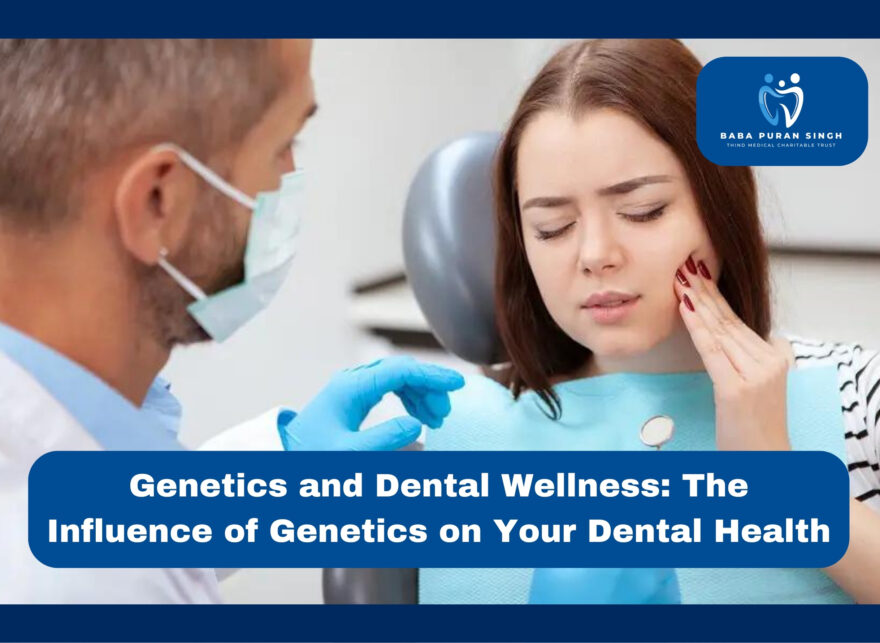In the intricate landscape of oral health, genetics plays a pivotal role, in influencing various aspects of dental development, susceptibility to oral diseases, and response to treatments. At Baba Puran Singh Dental Charitable Trust in Ludhiana, we recognize the significance of understanding the interplay between genetics and dental health to provide personalized care and empower individuals to take proactive steps toward maintaining optimal oral well-being.
Read: Innovation in Dental Training: Equipping Dentists for Modern Challenges
Genetic Foundations of Dental Health:
The genetic blueprint inherited from parents dictates many characteristics of dental health, including tooth structure, enamel strength, and susceptibility to dental conditions such as cavities, gum disease, and malocclusion. These genetic predispositions, combined with environmental factors and lifestyle choices, shape an individual’s oral health trajectory from childhood through adulthood.
Understanding Oral Health DNA:
Genetic variations, or polymorphisms, within specific genes, can significantly impact oral health outcomes. For example, variations in genes responsible for enamel formation (such as the AMELX and ENAM genes) may influence susceptibility to tooth decay and enamel defects. Similarly, genetic factors affecting immune response (e.g., the IL1 gene) can influence the risk of periodontal disease development and progression.
Read: Smile Makeovers: Charitable Dentistry’s Transformative Impact on Lives
Genetics and Dental Conditions:
1. Cavity Formation: Genetic variations can impact multiple factors involved in cavity formation. Saliva composition, influenced by genetic factors, affects its ability to neutralize acids and remineralize tooth enamel, crucial for cavity prevention. Additionally, variations in genes responsible for enamel formation and structure, such as AMELX and ENAM, can lead to weakened enamel, making teeth more susceptible to decay. Furthermore, alterations in the balance of oral bacteria due to genetic predispositions may contribute to increased cavity risk. Individuals with genetic predispositions for weakened enamel or altered saliva pH levels may be more prone to dental caries.
2. Gum Disease: Genetic factors play a crucial role in the development and progression of periodontal disease. Genetic variations in genes involved in immune function and inflammatory pathways, such as interleukin-1 (IL-1), can influence an individual’s susceptibility to gum disease. These variations affect the body’s response to oral bacteria, impacting the integrity of gum tissues and the severity of inflammation. Furthermore, genetic predispositions may influence the production of certain proteins involved in tissue repair and regeneration, affecting the body’s ability to combat gum disease effectively.
3. Malocclusion: The alignment of teeth and jaw structure is heavily influenced by genetic factors. Variations in genes related to craniofacial development, such as those involved in tooth and jaw formation, can contribute to malocclusion and orthodontic issues. Factors such as crowding, misalignment, and bite irregularities may result from genetic variations affecting the size, shape, and positioning of teeth and jaws. Additionally, genetic factors may influence the development of supporting structures such as the jawbone and facial muscles, further impacting the alignment of teeth.
Read: Dental Care During Pregnancy: Our Guide for Expecting Mothers
Personalized Dental Care:
By understanding the genetic underpinnings of dental health, dental professionals at Baba Puran Singh Dental Charitable Trust can tailor preventive strategies, treatment plans, and interventions to address each patient’s unique genetic predispositions and risk factors. From early childhood screenings for genetic markers associated with cavities to personalized periodontal therapy based on genetic susceptibility to gum disease, personalized dental care enhances outcomes and promotes long-term oral health.
Genetic Testing in Dentistry:
Advancements in genetic testing technologies allow for the identification of specific genetic markers associated with various dental conditions and traits. Genetic testing can provide valuable insights into an individual’s oral health risks and guide preventive measures and treatment decisions. As the best dental Charitable Trust in Ludhiana, we leverage genetic testing as a tool for risk assessment, early detection, and personalized treatment planning, empowering patients to take proactive control of their oral health.
Read: Preventive Dentistry: A Thorough Guide to Healthy Smiles
Conclusion
In conclusion, understanding the intricate relationship between genetics and dental conditions provides valuable insights into individual susceptibility and treatment responses. At our dental charitable trust in Ludhiana, we recognize the importance of integrating genetic considerations into personalized dental care. By addressing genetic predispositions alongside environmental factors and lifestyle choices, we can optimize preventive strategies and treatment plans, promoting long-term oral health and well-being for our community.
For personalized dental care tailored to your unique genetic profile, contact us at Baba Puran Singh Dental Charitable Trust. Our compassionate team is dedicated to providing accessible and comprehensive dental services that prioritize your oral health needs. Let us be your partner in achieving a healthy smile for life.

